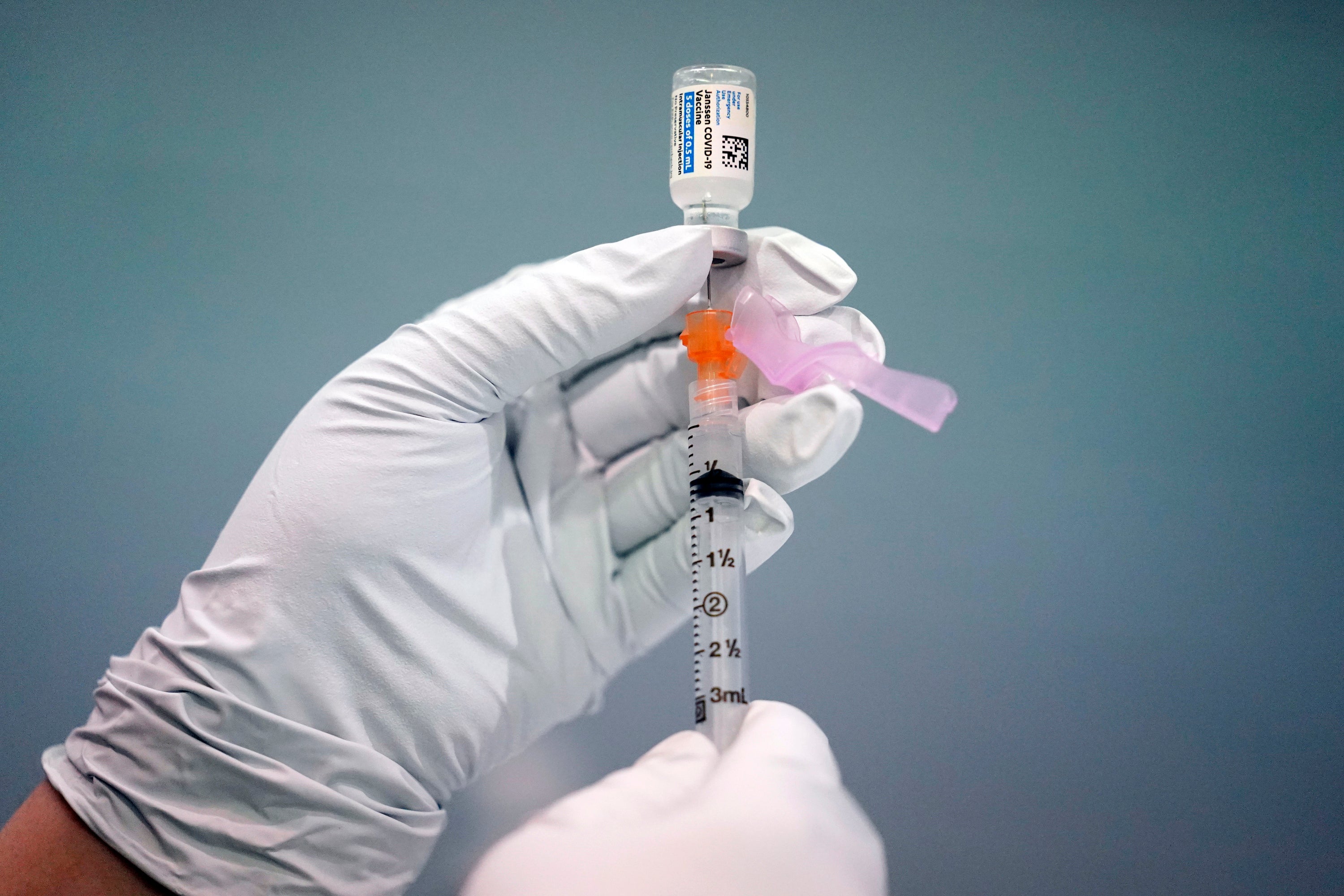CDC panel reviews clot risk linked to J&J's COVID-19 vaccine
A government advisory panel is reviewing new safety data about rare but potentially life-threatening blood clots linked to the Johnson & Johnson COVID-19 vaccine

Your support helps us to tell the story
From reproductive rights to climate change to Big Tech, The Independent is on the ground when the story is developing. Whether it's investigating the financials of Elon Musk's pro-Trump PAC or producing our latest documentary, 'The A Word', which shines a light on the American women fighting for reproductive rights, we know how important it is to parse out the facts from the messaging.
At such a critical moment in US history, we need reporters on the ground. Your donation allows us to keep sending journalists to speak to both sides of the story.
The Independent is trusted by Americans across the entire political spectrum. And unlike many other quality news outlets, we choose not to lock Americans out of our reporting and analysis with paywalls. We believe quality journalism should be available to everyone, paid for by those who can afford it.
Your support makes all the difference.A government advisory panel is meeting Thursday to determine if any restrictions are needed for the Johnson & Johnson COVID-19 vaccine because of rare but serious blood clots.
A strange clotting problem prompted the U.S. to temporarily halt the single-dose J&J shots last April while scientists investigated. Eventually regulators decided the benefits of a one-and-done vaccine outweighed what was considered a very rare risk -- as long as recipients were warned.
While it’s still rare, the Food and Drug Administration told health care providers this week that more cases have occurred since the spring. They occur most in women between 30 and 49 -- about once for every 100,000 doses administered, the FDA said.
Overall, the government has confirmed 54 clot cases in both women and men, and nine deaths that included two men, Dr. Isaac See of the Centers for Disease Control and Prevention said Thursday. He said two additional deaths are suspected.
The CDC decides how vaccines should be used in the U.S., and its influential advisory committee is deliberating whether the newest safety data warrants any new limits on J&J's vaccine.
More than 200 million Americans are fully vaccinated, about 16 million of them with the J&J vaccine. The other two vaccines used in the U.S. -- from Pfizer and Moderna -- are made differently and regulators say they don’t come with this clot risk. And unlike in the spring when vaccine supplies were tight, Pfizer and Moderna shots now are plentiful in the U.S.
COVID-19 itself can cause potentially deadly blood clots. But the suspect culprit for the vaccine-related kind is a rogue immune response linked to both the J&J shot and a COVID-19 vaccine made by AstraZeneca Both of those vaccines are made similarly, using a cold virus known as an adenovirus, although AstraZeneca's shot is not used in the U.S.
The FDA this week warned that another dose of the J&J vaccine shouldn't be given to anyone who developed a clot following either a J&J or AstraZeneca shot.
At issue is a weird kind of blood clot that forms in unusual places, such as veins that drain blood from the brain, and in patients who also develop abnormally low levels of the platelets that form clots. Symptoms of the unusual clots, dubbed “thrombosis with thrombocytopenia syndrome,” include severe headaches a week or two after the J&J vaccination — not right away — as well as abdominal pain and nausea.
Several other countries already have recommended age restrictions for both the AstraZeneca and J&J vaccines, or that preference be given to the Pfizer and Moderna vaccines.
___
The Associated Press Health and Science Department receives support from the Howard Hughes Medical Institute’s Department of Science Education. The AP is solely responsible for all content.